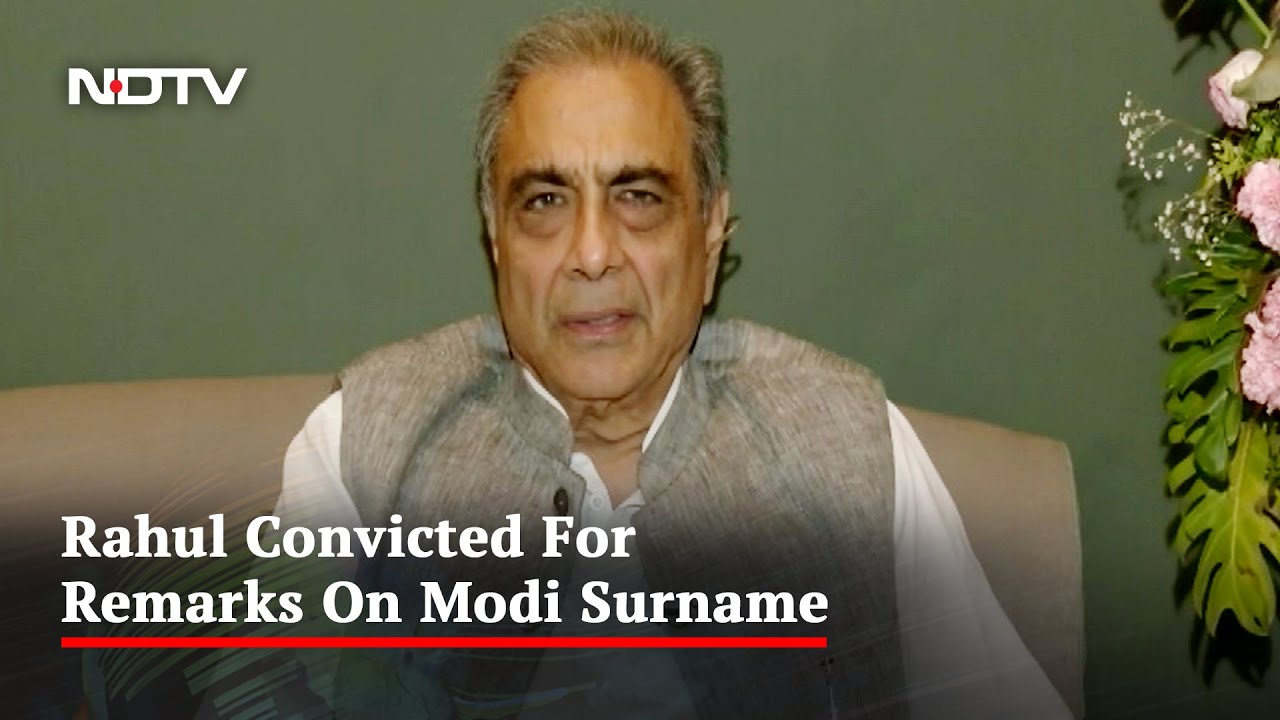“Mp Stands Disqualified If Sentence Is 2 Years”: Bjp Mp On Rahul Gandhi | Left, Right & Centre
Unleash Your Creative Genius with MuseMind: Your AI-Powered Content Creation Copilot. Try now! 🚀
Ladies and gentlemen, in the realm of democracy, there exists a delicate balance between power and responsibility. It's a dance of accountability that we must all embrace. Today, we have the privilege of diving into the depths of parliamentary disqualification and exploring the intriguing intersection of law and governance.
The Unveiling of Disqualification
Joining us in this enlightening conversation is none other than Mr. Mahesh Jait Malani. Now, the first and perhaps the most pivotal question that emerges is whether this is a mere disqualification of a Member of Parliament. But as Mr. Malani astutely points out, it's not a matter of personal opinion, but a mandate of the law itself.
The legal doctrine unequivocally states that if an individual has been convicted of an offense carrying a sentence of not less than two years, they stand on the precipice of disqualification. It's a stark reminder that the law, with its unyielding authority, takes precedence over personal sentiments.
The Evolution of Disqualification
To truly comprehend the significance of this matter, we must journey into the annals of history. Originally, disqualification used to take effect three months after a conviction, a provision rooted in the Representation of People's Act. However, the story took an unexpected turn when the Supreme Court entered the arena.
The highest court in the land, with its wisdom and insight, declared that Parliament had no jurisdiction to postpone the date of disqualification. It was a transformative moment, for it decreed that disqualification would take immediate effect upon conviction and sentencing.
This ruling, a beacon of legal brilliance, underscores the unwavering commitment to the sanctity of the law. It's a testament to the power of the judiciary to shape the destiny of governance.
The Quandary of Disqualification
As we reflect upon the implications of this legal mandate, we find ourselves at a crossroads of thought and contemplation. The issue at hand is not just about the disqualification of an MP; it's a profound question of ethics and accountability. What are the consequences when our elected representatives face the clutches of the law?
In this labyrinth of parliamentary intricacies, we unearth the necessity of a robust legal framework. It is this very framework that ensures that those entrusted with the power to govern are bound by the same laws that apply to the citizenry. It's a reminder that no one is above the law, no matter how high their office or lofty their ambitions.
The Imperative of Justice
In the grand tapestry of our democracy, the disqualification of MPs is not a mere footnote but a testament to the enduring principles of justice. It is a mechanism that upholds the values of transparency, accountability, and the rule of law. It is a reminder that even in the corridors of power, justice prevails.
In conclusion, we find ourselves at the intersection of law and governance, where the mandates of the legal system hold the key to the future of democracy. The disqualification of MPs, as outlined by Mr. Mahesh Jait Malani, serves as a potent symbol of the checks and balances that underpin the very foundations of our nation. It is a reminder that in the great tapestry of democracy, every thread, no matter how delicate, plays a vital role in weaving the fabric of a just and equitable society.
